Schedule an appointment to meet with Career & Experiential Learning about your area of interest.
Make an Appointment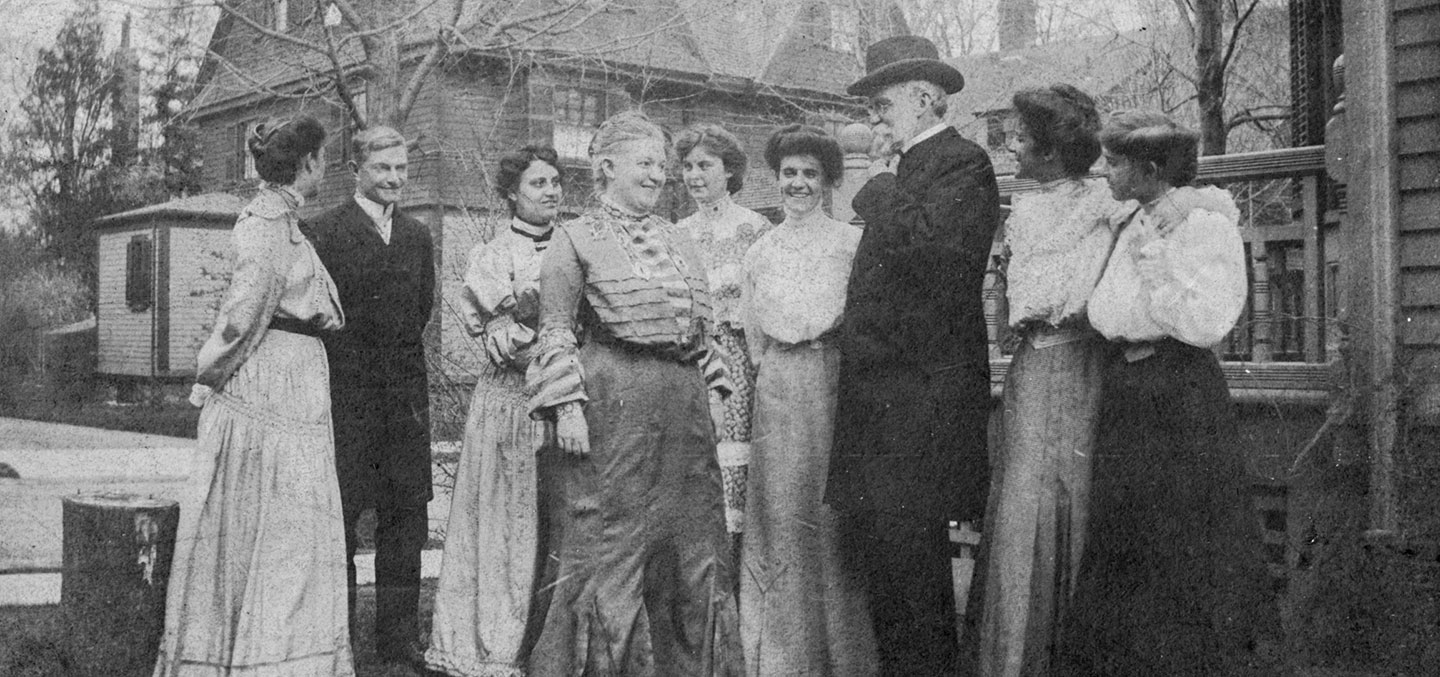
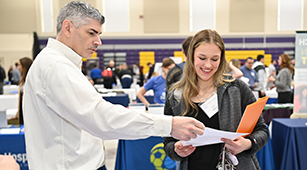
Schedule an appointment to meet with Career & Experiential Learning about your area of interest.
Make an Appointment
Student-run clubs, organizations, and events are a key part of succeeding at Curry.
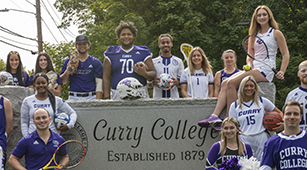
A Division III experience unlike any other. See what it means to be a Curry Colonel.
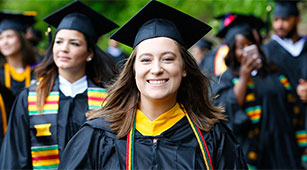
Empower our students to achieve their ambitions. Consider a gift to Curry College today.
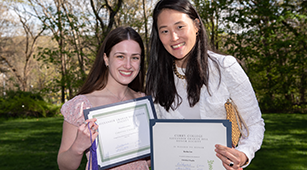
Our rich liberal arts tradition, sound career focus, and empowering and supportive environment prepare our students for success.

From our founding in 1879 by Anna Baright Curry and Samuel Silas Curry, the Curry College legacy of understanding and respecting the uniqueness of every student has been elevated through generations of faculty and staff to serve the needs of contemporary students.
Walking daily in the footsteps of the Currys, we maintain the belief in helping each of our students understand their individual interests and talents as they seek and achieve excellence in their lives and successfully take their place in the world.
Curry College welcomes an exciting variety of students to our dynamic and friendly campus environment. Coupled with the academic, personal and professional support students might need to successfully complete their program of study, we provide the challenging coursework, important life experiences and career-focused opportunities they desire.
As each graduating class adds its unique personality and successful outcomes to our community, the respectful legacy of Curry College lives on through more than 20,000 alumni, as well as our valued parents, friends, faculty and staff.
Anna Baright was born into a Quaker family in Poughkeepsie, New York in 1854. She attended Cary's (Friends) School and Cook's Collegiate Institute, from which she graduated in 1873. She taught briefly in New York state before teaching elocution in Milwaukee Female College. In 1875 she entered the Boston University School of Oratory. She graduated Cum Laude in 1877.
That School was headed by Dean Lewis Baxter Monroe, who has been called a Transcendentalist, after the glory days of New England Transcendentalism. Certainly something of the transcendentalist spirit characterized the school of the Currys and somewhat influences the college today. It is a practically applied Transcendentalism that emphasizes the centrality of mind and the abilities of people to triumph over challenges that sometimes seem insurmountable.
Professor J. W. Churchill of Boston University called Anna Baright "the greatest woman reader [dramatic reciter] in the country." Dean Monroe said, "Her power is second to none, either on the platform or as a teacher."
Monroe appointed Baright his First Assistant. They were planning the country's first summer school of oratory, to be held on Martha's Vineyard, in 1879, when Monroe died. Baright carried on the work and the five-week term was highly successful. But after Monroe's death the School of Oratory was demoted to a department in the School of All Sciences and the University entrusted its leadership to a young man, later Snow Professor of Oratory, who had studied with Monroe and to whom Monroe had referred to Miss Baright as a private student: Samuel Silas Curry.
Baright's School
With the encouragement of Boston University President William F. Warren, Anna Baright set up her own school, the School of Elocution and Expression, in downtown Boston in the fall of 1879. It had the purpose of carrying on Monroe's principle that "expression is the outward manifestation of that which is already in the consciousness." This school provided a two-year program patterned on that of the former Boston University School of Oratory.
Alexander Graham Bell's father, Boston University Professor Alexander Melville Bell, a leading elocutionist, was a valued advisor of Curry and endowed a chair for the School of Expression. When the School gave the elder Bell its highest honor, the diploma of honor, in 1899, it addressed him as one of its co-founders.
One of Curry's Boston University School of Oratory teachers was Alexander Graham Bell. Bell's opening lecture, in 1873, stimulated Curry with regard to the possibilities of the science of voice." According to one of the Currys' daughters, Curry was present when in 1876 Bell made his first telephone call, requesting help from Mr. Watson. Bell was the Chancellor of the School of Expression from 1907 until his death in 1922.
Samuel Silas Curry was born in a simple farm house in Chatata, Eastern Tennessee, on November 23, 1847. His family included Daniel Boone, Kit Carson and Davy Crockett. He was also born into the rigors of farming life, including the difficulties of the four years of the Civil War, during which the armies of the North (to which East Tennessee remained loyal) and the South kept moving across the state, taking from the farm whatever they wanted. There were no schools operating there at that time, so Curry "and his brothers, after working on the farm all day, studied by themselves late into the night before the pine-knot light of the fireplace."
Curry gave up his right of inheritance and worked his way through East Tennessee Wesleyan University, from which he was graduated with honors in 1872. In 1875 he earned his S.T.B. ministerial degree at Boston University. His diploma from the School of Oratory and his M.A. degree, were awarded in 1878. He received his Ph.D, from Boston University in 1880. The same year he received his diploma from Guilmette's School of Vocal Physiology. During the summers of 1880 and 1882 he studied with prominent teachers in England, Italy and France. In 1905 Colby College awarded him a degree of Litt.D.
While serving as the head of the School of Expression, Curry also taught at various times in several theological schools, from Union Theological Seminary in New York to the University of Chicago. Despite his religious commitment, the institution has never had any denominational affiliation. S. S. Curry's own religious orientation moved from Methodism to the Transcendentalist-related outlooks of Christian Science and the New Thought movement, which William James in The Varieties of Religious Experience considered under the heading "the religion of healthy-mindedness." A School of Expression teacher, John Seaman Garns, later became President of the International New Thought Alliance. However, Curry was not exclusive in his religious connections. He was a close friend of Phillips Brooks of Trinity Church and George A. Gordon of the new Old South Church.
Curry's Experience and Overall Philosophy
Curry said:
"One Sunday morning I stood before an audience in the middle of an address, unable to speak a word. The horror of those moments has never been blotted from my memory. The failure was a climax of several years of misuse of my voice, though during that time I had sought help from every available source. I determined to search still more diligently to find the causes of my condition."
It may be that his whole career in the study and teaching of expression was part of that search.
Curry characterized the School of Expression as an institution, founded by many educational leaders, whose aim is for the student to find self. It is a school of self-study with a method of self-study to give an awakening to all. Reading is an expression of art and should support all art as all scientific study. The primary effort is to trace all faults to a cause. All of our work is from within outward, impression always preceding expression.
Curry's Philosophy of Education
Curry considered all the reforms in education for the past two hundred years [as having] been in the direction of expression: to harmonize the education of the mind with the education of the body; to co-ordinate the power of thinking and the power of feeling; and to harmonize all the faculties of the mind.
Curry referred with apparent approval to Frobel's observation that "all education was emancipation," and added:
If so, a study of expression affords one of the most effective means of removing all repression [He added that] to develop the highest power in expression abnormal traits of character must be corrected and all the powers be brought into simultaneous co-operation.
Curry explained his basic educational principles in terms of the thought of Pestalozzi, who emphasized the importance of two sides of education, reception, or acquisition, on the one hand, and production, or creation, on the other. "We call these two phases of education Impression and Expression," said Curry.
Curry's philosophy naturally led to emphasis on the individual student.
The 1885 first catalog of the School of Expression shows great flexibility for students to choose courses in accordance with their needs and available time, so that no student is retarded by being a member of a class. By this arrangement, also, students can elect a course suited to their individual needs, or students of neighboring colleges and schools can elect steps according to their time, and thus take a full course by extending it over a longer period.
The school's emphasis on individual attention is found in catalogs such as that of 1900-1901, saying: "Every student is requested to call and have his needs analyzed, and receive suggestions for work from one of the teachers sometime before the opening of school." Personal concern for students extended well beyond the classroom. The School carefully supervised the housing that students could find in the neighborhood. The catalog emphasized: "The first aim of the School is [and the rest of the sentence is in capital letters] TO ATTAIN THE HIGHEST IDEAL OF MANHOOD AND WOMANHOOD."
On May 31, 1882, Anna Baright married Samuel Silas Curry. In 1885 the name of the school was changed to the School of Expression. The new name indicated emphasis on natural expression, as distinguished from the artificial formulas associated with elocution. In the same year, the Boston University trustees gave Curry permission to merge his private classes into the new school. In 1888 the School was chartered by the state and Curry left his Boston University position. Curry was the School's head, called variously over the years Principal, Dean, and President; Mrs. Curry served as teacher and eventually what was called Dean. The Currys had six children, including Haskell Curry, a noted mathematician and logician. The couple continued to run the School until S.S. Curry's death in 1921. Anna Baright Curry died in 1924.
Although the Currys would be amazed by the present campuses and programs of the institution, if they looked beneath the surface, as surely they would, they would be pleased to discover that much of the original spirit survives.
The Currys provided a remarkably comprehensive, holistic, education in the context of teaching public speaking which sometimes seems to have been little more than an opportunity for plumbing the depths of reality and joyously finding oneself in its flow. No characterization of the Curry Method does it full justice; it has been called an uncompromising completeness of approach to achieving practical wholeness of living involving intuition, thought, research, feeling, and physical expression. The method includes all that one could want in a traditional, intellectual liberal education, but goes beyond that to link it to a conscious drawing out of whatever creative essence lies at the heart of one's existence and facilitates one in expressing creative synthesis in some constructive form. The tools, detailed topics, types of students and settings have changed over the decades, but the creative impetus endures. Such is the heart of Curry College.
The Heart of Curry's Vision
One's aspirations and ideals [are] his real self. Your fault is not you.
You ARE A SOUL and have a body.
What men need more than anything else for success in any calling is to test [to use] the positiveness of their attitude toward life, toward themselves, toward their work, toward truth.
Whatever longing is within you, consider prophetic of power, and persevere in the development of yourself. Do not crush out any aspiration. It has wider bearings on your development than you can see.
Your ideal is the prophecy of your future, of what you may become.
Respect your ideals. Dare to dream, but be not an idle dreamer. Dare to do what you dream. Search your heart to know what you most desire to do; then do it, for you can become, by perseverance, what you long to be.
All expression comes FROM WITHIN OUTWARD, from the center to the surface, from a hidden source to outward manifestation.
The study of expression as a natural process brings you into contact with cause and makes you feel the source of reality.
The real center of all our battles is in the mind, in our own power to control our attention, to be able to change the current of thought at the very beginning.
The higher the form of life, the more the co-operation.
To shut yourself up, even in your own reserve, is to fetter all possibilities.
The mission of the School [is to] show you what you are. It will train you to use your powers. . . . It will bring you into touch with your fellow-men, so that you can show them the life that stirs in you.
It will enable you to distinguish. . . . the truth from error, the spirit from form, your real self from faults and perversions. . . . [It] aids men to know the difference between appearance and reality [and] to feel the difference between what appears and what really is
When all this was put together in practice, the product was known as the Curry Method. Curry wrote about this and related matters in numerous books and articles.
The Institution after the Currys
Catalogs a decade after Curry's death, expressing Curry's thought and our own endeavors summarized the function of the institution in the following words:
From the beginning, the School of Expression has measured its usefulness largely by its ability to take people where it finds them and, through training, to enable them to realize their powers and possibilities.
From studying the catalogs, one gets the impression that for a decade after Curry's death, the school remained much as Curry left it. Thereafter, the Institution added a wide variety of courses in and out of the area of speech and, in 1938, was given the power to grant degrees. The title was changed officially from school to college on April 21, 1943. In the 1960s the prevailing emphasis was on becoming accredited, which was achieved in 1970. This meant becoming a traditional liberal arts college.
After Curry College attained accredited status, it launched again into pioneering programs. In 1970, it established its Program for Advancement of Learning (PAL), the nation's first college-level program for students with language-based learning difficulties. In 1974, Curry absorbed the Perry Normal School, which taught teachers of nursery, kindergarten, and primary levels. In 1977, Curry took over the Children's Hospital nursing school and converted it to a degree-granting program. In 1981, Curry established a master's degree program in education. Individually-initiated majors, field experience, and equivalent education became increasingly important in this decade. An Honors Program followed. In the 1990s, Curry has expanded greatly its Continuing Education programs, with courses offered not only in Milton but in its newly-acquired Plymouth site, with some courses also offered in Braintree, Cambridge, Medford, Peabody, and South Boston. Among the innovations are weekend and evening degree and certificate programs in several areas.
During the first several decades of its existence, the institution occupied five different locations in Boston. The last of them being two houses on Commonwealth Avenue; the only place that the College held owned until that time. Finally, in the 1950s it moved to its present spacious location in Milton.
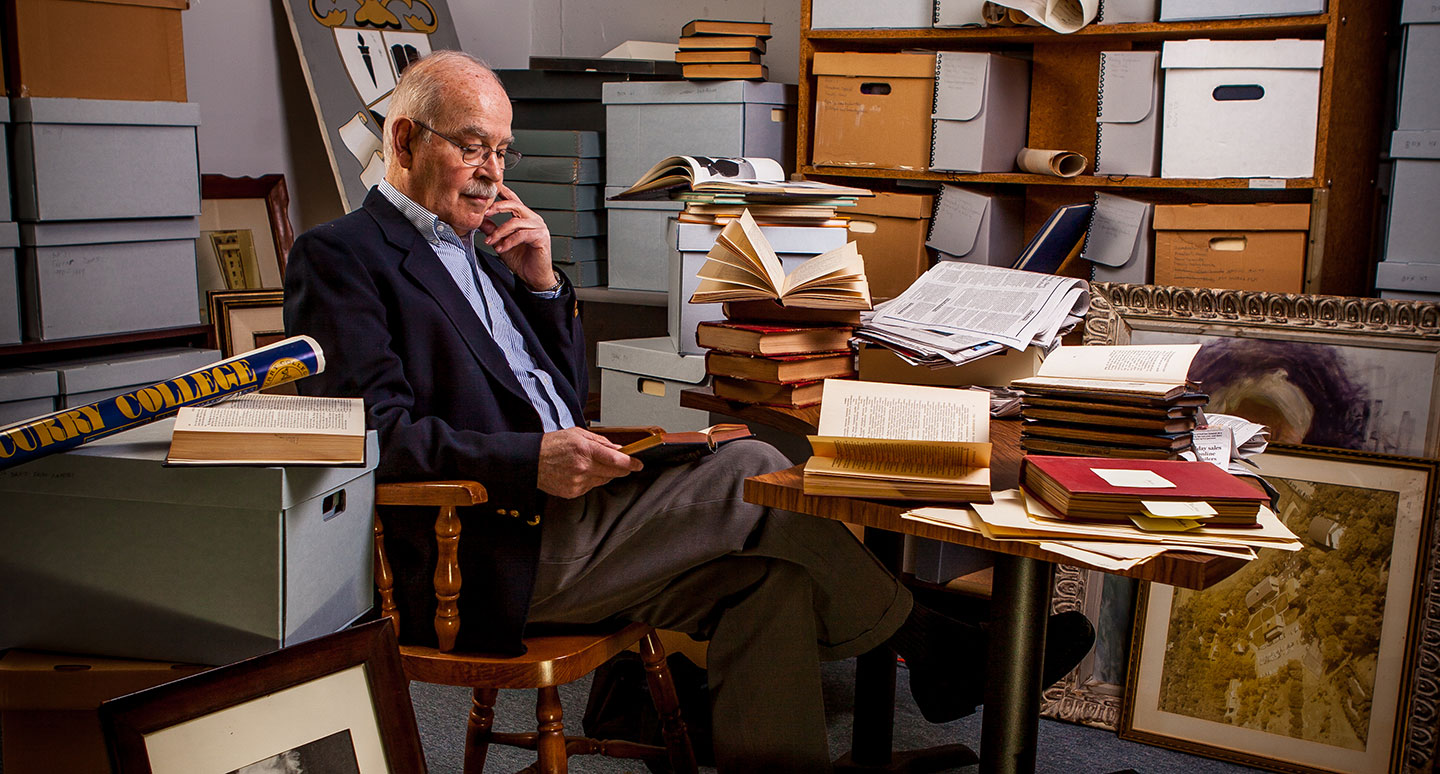
A History of Curry College by Dr. David A. Fedo
Explore Our HistoryWe use cookies to make interactions with our websites and services easy and meaningful. By continuing to use this website, you consent to Curry College’s usage of cookies and similar technologies in accordance with the college’s Cookie Notice.